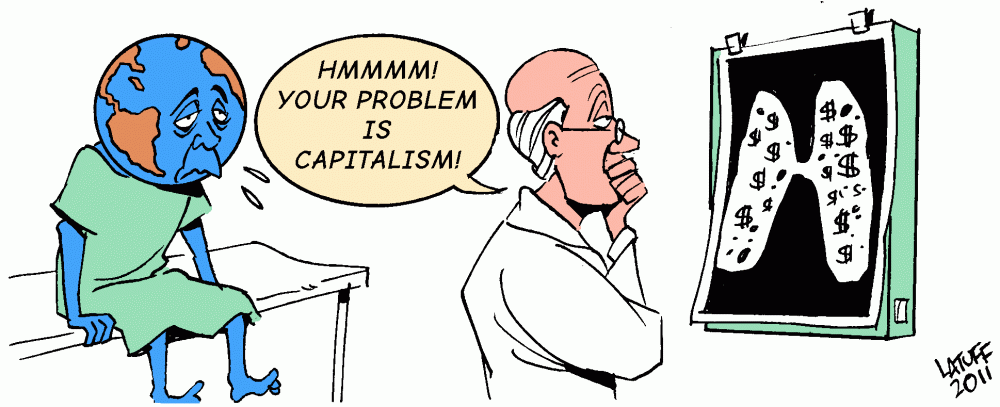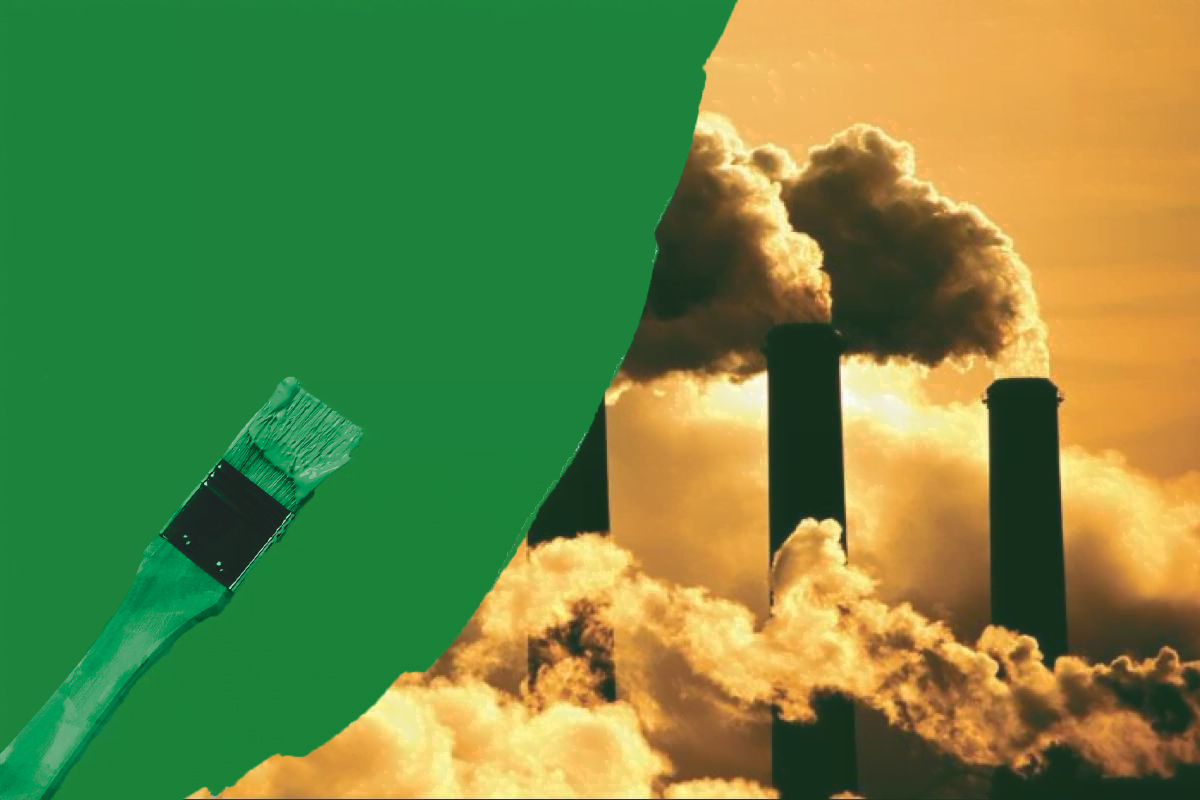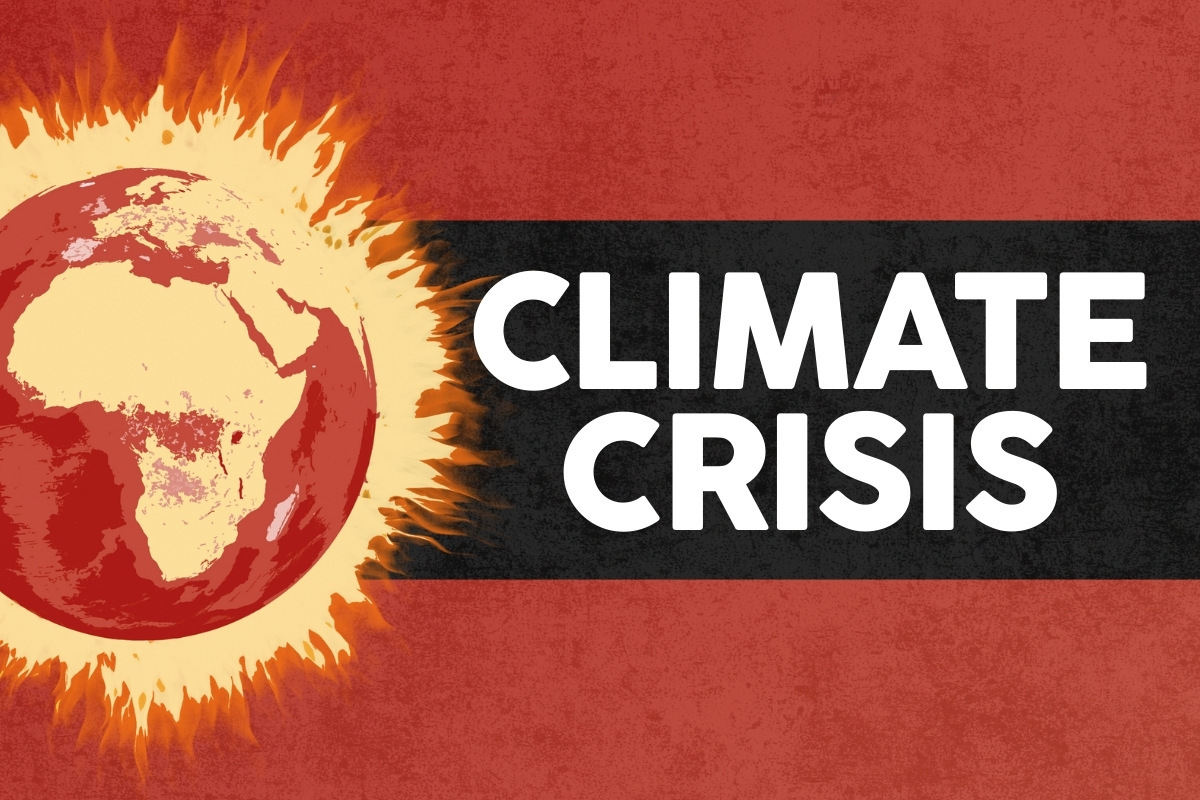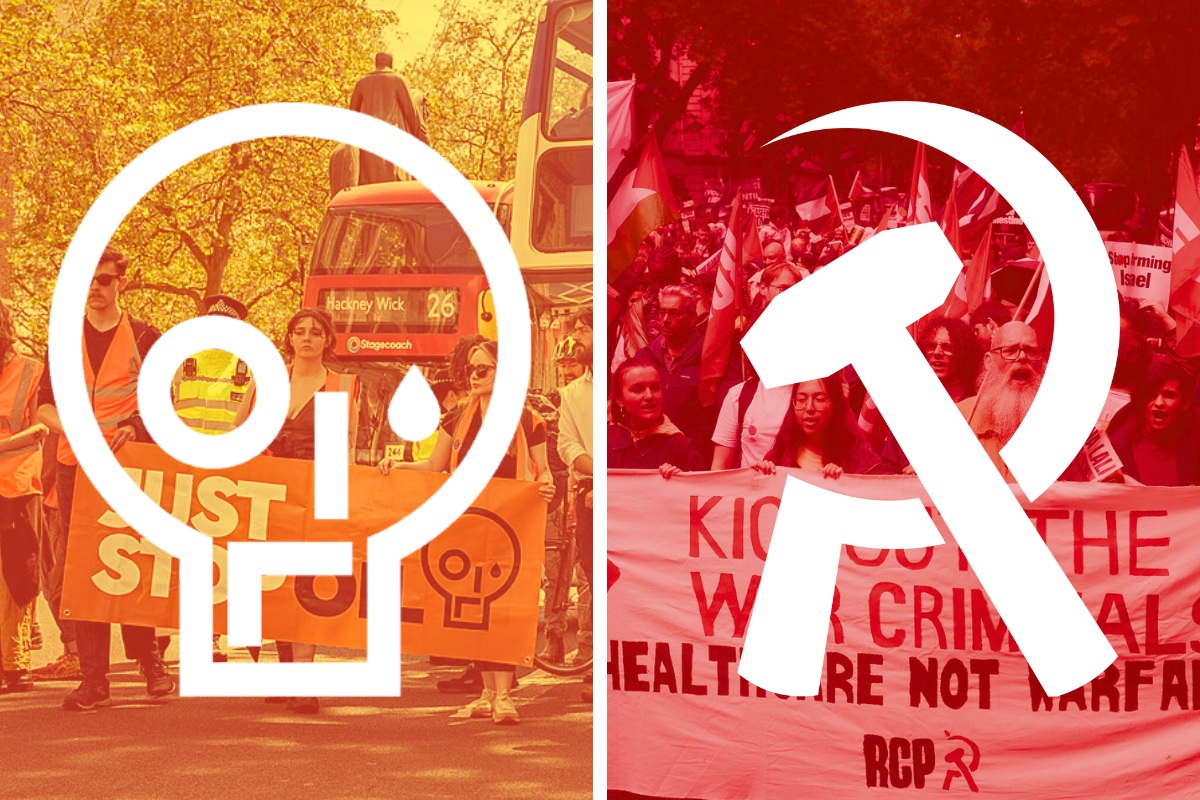Addressing the G7 earlier this month, Boris Johnson urged fellow world leaders to unite and “build back better”.
This exhortation marked the launch of the Build Back Better World (B3W) Partnership: a project instigated by the Biden administration, and backed by the G7 governments, to funnel private capital into climate, health, digital technology, and gender equality projects in developing countries.
Politicians and corporations understand that it is politically expedient to be seen to be doing something about burning issues like climate change and social inequality.
In reality, however, projects such as B3W are extremely cynical. Behind the superficial facade of environmental concern, and buzzwords about ‘ethics’ and ‘empowerment’, lie all the same old big business interests and imperialist exploits.
Meanwhile, corporations and capitalist governments are doing absolutely nothing to genuinely avert the climate crisis. After all, it is precisely their system – capitalism – that is responsible for the environmental catastrophe facing our planet.
Imperialist interests
 This latest example falls under the umbrella of ‘greenwashing’: an increasingly prevalent phenomenon, whereby the main climate culprits focus huge amounts of time and money on presenting themselves as environmentally friendly, rather than actually stopping their exploitative and destructive activities.
This latest example falls under the umbrella of ‘greenwashing’: an increasingly prevalent phenomenon, whereby the main climate culprits focus huge amounts of time and money on presenting themselves as environmentally friendly, rather than actually stopping their exploitative and destructive activities.
In the case of the B3W, the ulterior motive of the G7 is clear. This initiative is not about supporting developing countries and investing in real protection against climate change.
Instead, US imperialism and its allies are seeking to create a counterweight to the Chinese ‘Belt and Road’ initiative; to protect Western imperialism’s interests against China’s expanding sphere of influence – all whilst making it look like they are doing something about climate change.
In fact, between January 2020 and March 2021, G7 countries invested $189 billion into fossil fuels – billions more than they invested into alternative energy sources.
The commitment to “build back better” is a shallow lie; it is nothing more than a smokescreen for their continued support for the criminal behaviour of the bankers, bosses, and billionaires who are responsible for the vast majority of emissions, and who profit from environmental vandalism.
Carbon criminals
 There is no shortage of other examples of greenwashing.
There is no shortage of other examples of greenwashing.
Shell is currently sponsoring the ‘Our Future Planet’ exhibition at the Science Museum – an exhibition about solutions to the climate crisis. Shell is infamous for its complicity in human rights abuses, oil spills, and anti-climate lobbying.
Elsewhere, ExxonMobil spends millions advertising its commitment to developing carbon capture and storage technology. But in 2019, it captured less than 2% of its carbon emissions. And between 2010 and 2018, the fossil fuel giant spent less than 0.2% of capital expenditure on low carbon technologies.
And the list goes on and on…
‘Ethical’ investment
 On a larger scale, in the last year we have witnessed the meteoric rise of so-called ESG (Environment, Social, and Governance) funds: investment vehicles that promote themselves as ethical, sustainable, socially responsible, and value-driven.
On a larger scale, in the last year we have witnessed the meteoric rise of so-called ESG (Environment, Social, and Governance) funds: investment vehicles that promote themselves as ethical, sustainable, socially responsible, and value-driven.
Despite the market turmoil of the last year, these funds experienced rapid growth. A record $1.7tn is now held in ESG funds, representing an increase of 50% compared to a year ago.
In response to this, asset managers have rebranded their portfolios as ESG funds in order to attract more investment. Of course, this has not been accompanied by improvements to the sustainability of the activities carried out by the firms represented in these funds.
Following this trend, US investment management giant BlackRock – under pressure to appear more environmentally conscious – launched the Carbon Transition Readiness exchange-traded fund in April. It received a record-breaking $1.25 billion in investment on its opening day.
According to BlackRock, this fund will direct capital towards companies with strong environmental and social records. In reality, it invests in major polluters such as Chevron, ExxonMobil, and Amazon. For example, Amazon’s operations were responsible for 51.17 million metric tons of atmospheric carbon dioxide in 2019, an output equivalent to that of some countries.
The purpose of these funds is to provide a cover for investors to continue to pump their money into highly profitable polluting industries, which is a much less risky investment than clean energy.
The inherent short-sightedness of the profit-driven capitalist system has led us to a situation where the best option for the capitalist class – when faced with the potentially apocalyptic consequences of their own actions – is to craft a green edifice to hide behind, whilst accelerating their investment in polluting industries in a desperate attempt to stay ahead of their competitors.
Capitalist destruction
 It is true that there is now some level of investment in cleaner alternatives; and this has been steadily increasing, even if it is still dwarfed by investment in fossil fuels.
It is true that there is now some level of investment in cleaner alternatives; and this has been steadily increasing, even if it is still dwarfed by investment in fossil fuels.
But greenwashing plays a pernicious role in this industry too – serving to camouflage the exploitative operations of companies in the renewable energy sector, further proving that the market can provide no real solution to the climate crisis.
The rise of the ESG bubble, for example, has brought a surge in demand for control over raw materials – such as those needed to produce batteries, which are vital for electric cars and renewable energy storage.
But these natural resources are located in geographically concentrated areas. This has led to a race for control of mineral supply chains, sparking further clashes between the US and China, dubbed by some as a “new cold war”.
Lithium is one of these minerals; and most of the world’s lithium reserves are located under the Atacama Desert in Chile.
The mining practices carried out by multinationals SQM and Albemarle in the Atacama Desert, however, are causing the depletion of freshwater resources; water and soil contamination; dispossession of indigenous people from the land; human rights abuses; and health problems.
Lithium prices have more than doubled in the last year. Meanwhile, demand for resources such as copper and cobalt are also rising. As a result, this ecological and social destruction will only become more widespread, as profit-driven mining companies look to exploit new markets.
In short, under capitalism, even renewables are unsustainable.
Socialist alternative
All this is done in the name of clean energy. But whilst they may appear more ‘ethical’, renewables under capitalism are tainted with the same brutality and exploitation as fossil fuels.
This will always be the case, as long as the means of production remain in private hands, run according to the profit motive and the anarchy of capitalism.
Socialist economic planning is the only way to ensure a just transition to low-carbon energy and sustainable production.
Left to the market, any move to green alternatives will never be rapid enough, since fossil fuels remain so highly profitable; the manufacture of renewable technologies will be scarred by brutally exploitative, destructive, and profit-driven practices; and workers in obsolete, polluting industries will be thrown onto the scrapheap of unemployment.
If we want to actually “build back better”, we need to fundamentally transform the economy along socialist lines: replacing the chaos of capitalism with a rational, sustainable, and democratic plan of production, based on public ownership of the major monopolies, under workers’ control.
Only then can we end the facade of ‘greenwashing’, and genuinely tackle the climate catastrophe, in order to save our planet for future generations.





